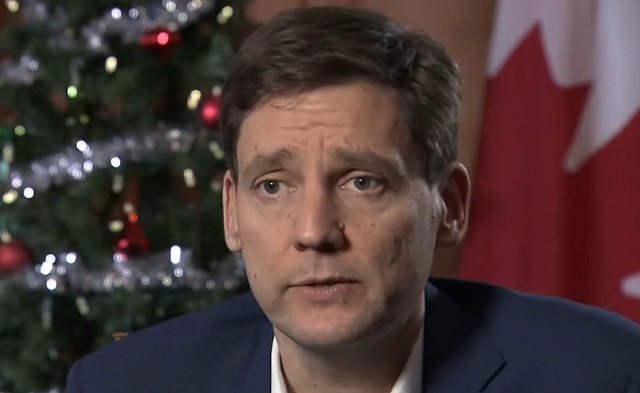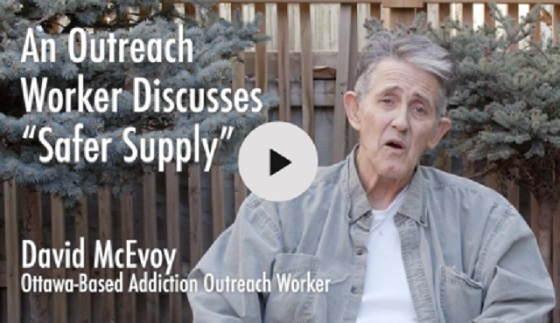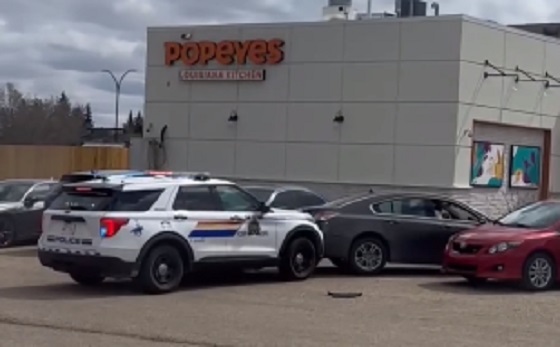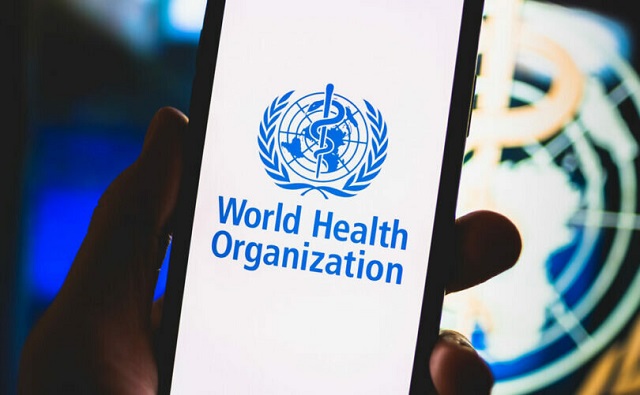Health
AHS Expanding Pertussis Program In Central Zone
By Sheldon Spackman
Sustained high rates of pertussis in Alberta Health Service’s Central Zone has led officials to expand their routine pertussis immunization program.
As of November 1st, women in their third trimester of pregnancy, regardless of previous pertussis immunization, can now get the pertussis vaccine.
In a release, AHS officials say offering vaccine to women in the third trimester of pregnancy is an important step in protecting infants, who are the most vulnerable to developing severe complications from pertussis.
Dr. Digby Horne is the Medical Officer of Health for the Central Zone and says “Immunization is not only safe and protective for pregnant women, it provides immunity to their infants after birth, protecting these infants before they’re old enough to be immunized themselves.”
Women in Central Zone who are 26 or more weeks pregnant are encouraged to call their local community health centre to book an appointment for this immunization. It’s also important to note that the pertussis vaccine will not be offered through influenza immunization clinics that are currently underway.
Pertussis is a bacterial infection that causes severe coughing that lasts for weeks and can lead to pneumonia, convulsions, brain damage and even death.
Addictions
British Columbia to re-criminalize hard drug use in public after massive policy failure

From LifeSiteNews
British Columbia premier David Eby announced that his province plans to re-criminalize hard drug use in public spaces after its decriminalization last year led to widespread social disorder.
British Columbia is asking the Trudeau government to roll back its drug decriminalization program after increased violence and continued overdoses.
On April 26, New Democratic Party (NDP) premier of British Columbia David Eby announced that he is working with Prime Minster Justin Trudeau’s federal government to re-criminalize drug use in public spaces, including inside hospitals, on transit, and in parks. British Columbia, under permission from the Trudeau government, had decriminalized such behavior in 2023.
“Keeping people safe is our highest priority,” Eby explained in a press release. “While we are caring and compassionate for those struggling with addiction, we do not accept street disorder that makes communities feel unsafe.”
“We’re taking action to make sure police have the tools they need to ensure safe and comfortable communities for everyone as we expand treatment options so people can stay alive and get better,” he continued.
Under the new regulations, police would be given the power to prevent drug use in all public places, including hospitals, restaurants, transit, parks and beaches.
However, drug use would remain legal at “a private residence or place where someone is legally sheltering, or at overdose prevention sites and drug checking locations.”
Eby’s concerns over drug use were echoed by Minister of Public Safety and Solicitor General Mike Farnworth who said, “Our communities are facing big challenges. People are dying from deadly street drugs, and we see the issues with public use and disorder on our streets.”
“As we continue to go after the gangs and organized criminals who are making and trafficking toxic drugs, we’re taking action now to make it illegal to use drugs in public spaces, and to expand access to treatment to help people who need it most,” he promised.
Beginning in early 2023, Trudeau’s federal policy, in effect, decriminalized hard drugs on a trial-run basis in British Columbia.
Under the policy, the federal government began allowing people within the province to possess up to 2.5 grams of hard drugs without criminal penalty, but selling drugs remained a crime.
While British Columbia has not yet indicated it plans to re-criminalize possession, its decision to clamp down on public drug use presents a major departure from its previous tactics of continually liberalizing its attitude toward narcotic use.
Since being implemented, the province’s drug policy has been widely criticized, especially after it was found that the province broke three different drug-related overdose records in the first month the new law was in effect.
The effects of decriminalizing hard drugs in various parts of Canada has been exposed in Aaron Gunn’s recent documentary, Canada is Dying, and in U.K. Telegraph journalist Steven Edginton’s mini-documentary, Canada’s Woke Nightmare: A Warning to the West.
Gunn says he documents the “general societal chaos and explosion of drug use in every major Canadian city.”
“Overdose deaths are up 1,000 percent in the last 10 years,” he said in his film, adding that “[e]very day in Vancouver four people are randomly attacked.”
Addictions
Must Watch: Addiction worker estimates 90% of “safer supply” drugs resold on black market

“It’s just… it’s created more addicts,” says David McEvoy, an Ottawa-based outreach worker who specializes in overdose prevention.
|
|
“Safer supply” refers to the practice of prescribing free recreational drugs as an alternative to potentially-tainted street substances. While advocates claim that this practice saves lives, David McEvoy, an Ottawa-based addiction outreach worker, says that approximately 90% of clients are reselling their taxpayer-funded drugs on the street, leading to new addictions and relapses.
His testimony is consistent with the testimony of dozens of addiction experts, former drug users, and youth. You can read a summary of his interview in the National Post here.
Our content is always free – but if you want to help us commission more high-quality journalism, consider getting a voluntary paid subscription.
-

 Education1 day ago
Education1 day agoSupport a young reader through the Tim Hortons Smile Cookie campaign
-

 Alberta2 days ago
Alberta2 days agoAlberta’s vision for passenger rail
-

 John Stossel2 days ago
John Stossel2 days agoWhy Biden’s Just Wrong: NO ONE “Knows How to Make Government Work.”
-

 Education2 days ago
Education2 days agoRebels earn Jim Donlevy Memorial Trophy as WHL Scholastic Team of the Year
-

 RCMP2 days ago
RCMP2 days agoRed Deer RCMP arrest two individuals following ramming of police vehicle
-

 Alberta2 days ago
Alberta2 days agoThree Calgary massage parlours linked to human trafficking investigation
-

 Business1 day ago
Business1 day agoWEF panelist suggests COVID response accustomed people to the idea of CBDCs
-

 COVID-192 days ago
COVID-192 days agoStates move to oppose WHO’s ‘pandemic treaty,’ assert states’ rights






